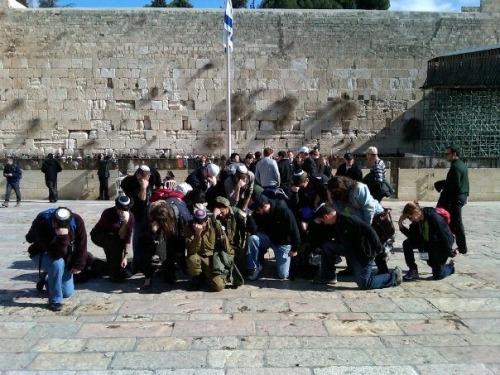Him: I can only tell you what the religion says. I can't claim to speak for its followers' behavior.
Me: A religion doesn't say anything. It's always the adherents who do the talking.
Him: We've had this debate before. I'm sure we'll have it again.
Me: This is just a point of logic. A religion cant say anything. It's always interpreted by people. The issue is that not every one recognizes the authority of everyone else's interpreter
Him: That's fine. Mine is still right.
Me: There is no right. Just the arguments we do and do not find significant. You think x is right because x for some reason has significance to you or provides some kind of payoff. All comes down to significance/ payoff
Him: You are arguing that there is no right and wrong. I disagree.
Me: Right and wrong / true and false aren't categories that apply to this discussion.
Him: 13th Century Europeans thought the world was flat. That doesn't validate their interpretation.
Me: Interpreting a text is categorically different from empirical observations. You can say they were wrong about the world being flat. Can't say an interp. of text is wrong in the same way.
Him: Halakha and medrash are not the same. There are rules for psak. Hareidim break them.
Me: Of course they are the same. It's all interpretation. And the rules of psak get interpreted, too... So cards on the table: do you think the Haredim are wrong? And do they know they are wrong?
Him: Yes. And I believe the rabbanim/Askanim know they are wrong, the followers are too blind to care
Me: I'm certain they think they are right; they just interpret differently than you do.
Him: There have been individual misguided people throughout history. Mainstream haredism is an intentional distortion.
Me: Don't be silly. It's a good faith interpretation of the tradition that we find unappealing, or lacking in significance... but ok... you claim the Haredim KNOW they are wrong. So what's their purpose?
Him: Control
Me: So is the claim that your sect is pure as the driven snow, but no one else's is? Haredim are after control, or pursuing their own understanding of significance, or chasing some other payoff -- all while knowing that they are wrong -- but your sect alone has pure motives?
Him: You are making the atheist argument that 100% of religion is subjective not divine.
Me: Of course it's subjective! Everything humans touch is subjective. It's all filtered through our imperfect human minds. We interpret what God said. We interpret what He wants. Different people see things differently. That's what it means to be human! You're making the nonsense claim that the haredim are human beings, but your sect are angles.
Him: Actually we are parallelograms.
Me: hahaha. So my argument is accepted?
Him: No. But we're going in circles.
Me: No. We weren't
And so it ended. Your views?







